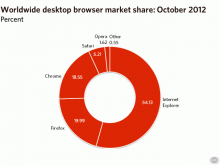Ubuntu On A Phone Or Firefox OS: Which Scares iPhone And Android Most?
Last week, Canonical finally showed the world how Ubuntu looks when running on a smartphone. And it looks good. The mobile version of the popular OS is fast, pleasant to the eye and features original design solutions not found anywhere else.













































































